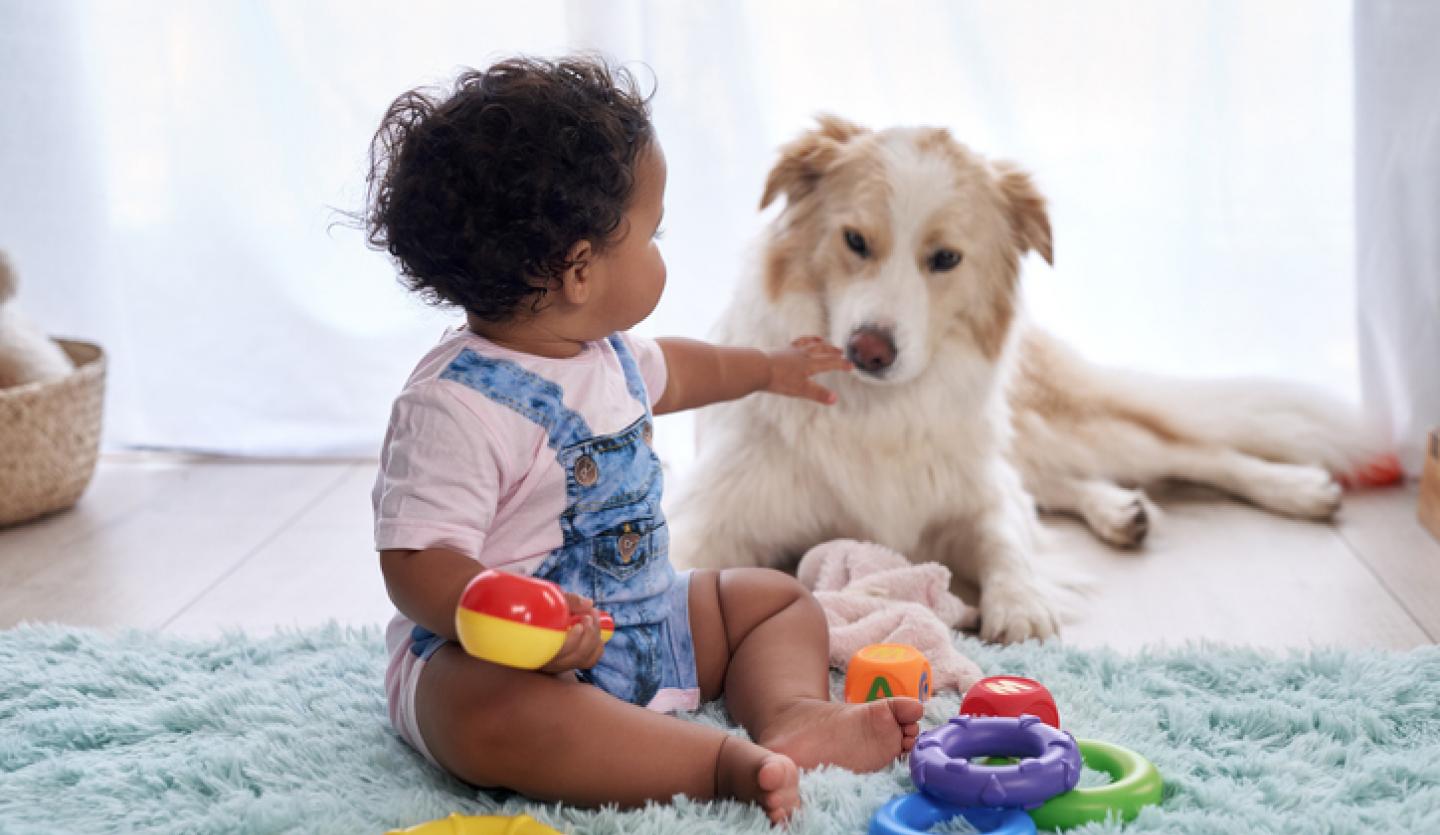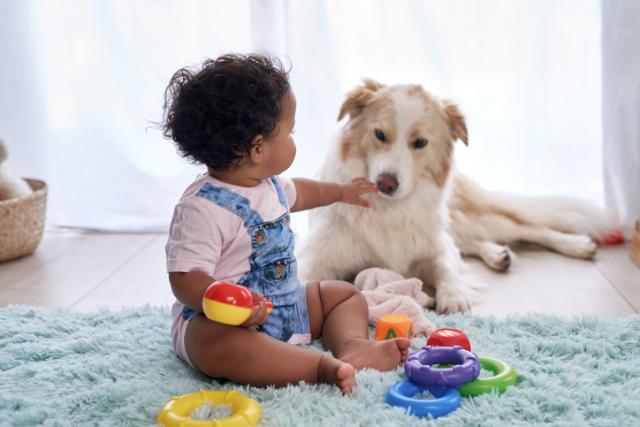Each year, more than 4.5 million people in the United States are bitten by dogs and at least half of these are children. Children are the most common victims of dog bites and are the most likely to be severely injured. Most dog bites affecting young children occur during everyday activities and are usually by a dog familiar to the child.
These tips from the American Veterinary Medical Association and the American Academy of Pediatrics can help keep your child safe:
- Never leave your baby or small child alone with a dog, even if it is your own dog, a dog that is known to you, or a dog that you have been told is well behaved. Any dog can bite.
- Keep dogs out of infants’ and young children’s rooms unless there is direct and constant supervision.
- Never bother a dog that is sleeping, eating, or caring for puppies. Dogs in these situations are more likely to respond aggressively, even with a person who is familiar to them.
- Teach kids never to tease dogs by taking their toys, food or treats, or by pretending to hit or kick.
- Do not allow your child to play aggressive games with a dog, such as tug-of-war or wrestling, as this can lead to bites.
- Teach kids to never pull a dog’s ears or tail, climb on or try to ride dogs.
- Teach children that if a dog goes to bed or to his/her crate, don’t bother them. Enforce the idea that the bed or crate is the dog’s space to be left alone. A dog needs a comfortable, safe place where the child never goes. If you’re using a crate, it should be covered with a blanket and be near a family area, such as in your living room or another area of your home where the family frequently spends time. Do not isolate your dog or his/her crate, or you may accidentally encourage bad behavior.
- Teach children that the dog has to want to play with them and when the dog leaves, he leaves. He’ll return for more play if he feels like it. This is a simple way to allow kids to be able to tell when a dog wants to play and when he doesn’t.
- Sometimes, especially with smaller dogs, some children might try to drag the dog around. Don’t let them do this. Also discourage them from trying to dress up the dog. Some dogs just don’t like to be dressed up.
- When outside, teach your child to ask the dog owner for permission before petting any dog. Don’t ever pet a dog without asking first—even if it’s a dog you know or a dog that’s seemed friendly toward you before.
- Let a dog sniff you or your child before petting, and stay away from the face or tail. Pet the dog gently, and avoid eye contact, particularly at first.
- Do not allow your child to run past a dog, because dogs may be tempted to chase them.
- Teach your child that if a dog is behaving in a threatening manner (e.g., growling and barking) to remain calm, avoid eye contact with the dog, and back away slowly until the dog loses interest and leaves.
- Teach children to confidently, quietly walk away if they’re confronted by an aggressive dog. Instruct them to stand still if a dog goes after them, then take a defensive position. It often helps to tell them to “be a tree:” stand quietly, with their hands low and clasped in front of them, remain still and keep their head down as if looking at their feet. If they are knocked down, teach them to cover their head and neck with their arms and curl into a ball.
- Teach children to avoid escalating the situation by yelling, running, hitting or making sudden movements toward the dog.
- As a parent, report stray dogs or dogs that frequently get loose in your neighborhood.
- Don’t give kids too much responsibility for pets too early—they just may not be ready. Always supervise and check on pet care responsibilities given to children to ensure they are carried out
- Remember: if you get your child a pet then you’re getting yourself a pet too.
Preparing For a New Baby
You may want to prepare ahead if you’re expecting a baby. View the guide “Preparing Your Dog for a New Baby” from The American Society for the Prevention of Cruelty to Animals (ASPCA) on the many steps you can take in advance.
American Academy of Pediatrics:
Call (866) MY-LI-DOC (866-695-4362) to find a Catholic Health physician near you.



